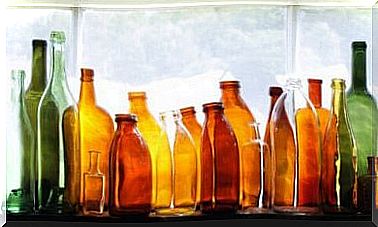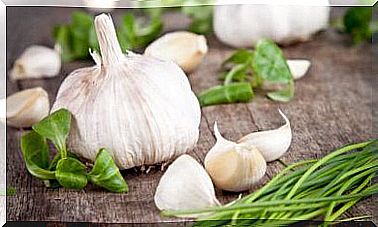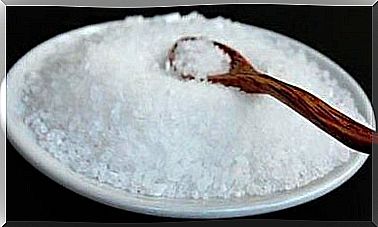Prohibited Foods For Those With High Uric Acid Levels
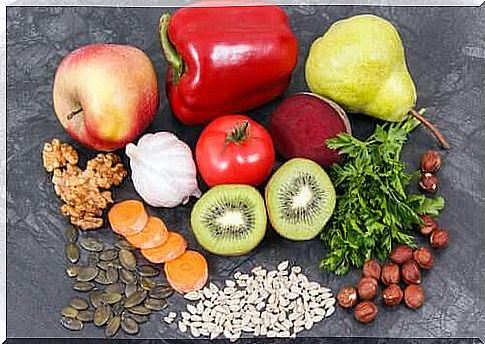
High uric acid levels, or hyperuricemia, have traditionally been associated with people who love excess, both in food and drink. Although we know that this depends on a multitude of factors, diet is essential to solve the problem.
What is hyperuricemia?
Uric acid is a compound made of carbon, nitrogen, oxygen and hydrogen that is generated when the body breaks down purines. Purines form naturally in the body, and we also find them in some foods.
Uric acid does not cause health problems at normal levels as it is excreted by the kidneys. However, for many different reasons, their presence can rise above acceptable levels.
When someone suffers from hyperuricemia, one of the most dreaded symptoms is the gout attack. However, the negative consequences of high uric acid go further. It has been associated with an increased risk of chronic renal, cardiovascular, and arthritic damage.
Food and high uric acid levels
Excess uric acid must be corrected to avoid long-term health problems and also the loss of quality of life in people who suffer from it. Correcting some dietary guidelines can be very beneficial.
If you suffer from this health problem, you should avoid certain foods. Below, we present foods that, although not completely prohibited, should have their consumption limited.
Purine-rich foods
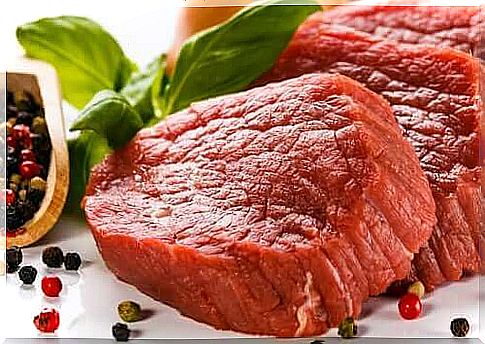
Purines are components formed naturally by the body. When they degrade, uric acid appears. Therefore, controlling your consumption of purine-rich foods can help lower the amount of uric acid in your blood, especially during gout attacks.
The foods richest in purines are:
- Liver, kidney, gizzard and other viscera.
- Red meat, lamb and pork.
- Oily fish and crustaceans: sardines, anchovies, tuna, lobster, shrimp, crab. It is not convenient to eliminate them completely, as we would be losing their benefits. So try to moderate the portions.
- Built-in.
- Highly fermented cheeses.
- Some vegetables, such as asparagus, peas, spinach and tomatoes, are also rich in purines. A sensible option is to moderate your consumption of this type of vegetable to about twice a week.
very fatty foods
The elimination of urates is hampered by the ingestion of fats. Therefore, we will do well to control the fat portions if we have high uric acid levels.
The best option, as almost always, is still extra virgin olive oil for seasoning dishes and also for cooking. It is better to completely eliminate processed foods which may have trans or hydrogenated fats and reduce saturated fats.
Fructose and sugary drinks
Fructose is the only carbohydrate that has been shown to have a direct relationship to uric acid metabolism. In this case, we refer to sweetened soft drinks and fruit juices. The risk of gout is twice as high among people who consume two or more sugary drinks a day compared to those who drink less than one a month.
However, the reason why this increase in uric acid occurs cannot be exactly determined. This can be due to other components of beverages – in addition to fructose – or other associated harmful habits.
Alcohol
In the case of alcoholic beverages, there is no doubt. The risk of developing gout is more than double among men who consume 50 grams or more of alcohol a day compared to those who do not drink.
In both men and women, alcohol consumption is associated with higher rates of uricemia and gouty diseases. However, the risk is greater in women.
This is because a high and punctual consumption of alcohol increases the concentration of lactic acid. This hampers the renal elimination of uric acid. If, on the other hand, alcohol consumption is chronic, the problem is that the amount of purines increases.

Dietary guidelines for those with high uric acid levels
Regarding hyperuricemia, we shouldn’t just talk about prohibited foods. There are also dietary guidelines and other related aspects that will help us improve the situation:
- It is not advisable to be over weight that is considered healthy for your height. If you are overweight, a gradual weight loss orientation is essential.
- We shouldn’t have very intense fasts or caloric restrictions, because in these cases the levels also increase.
- Maintain good hydration. It is necessary to drink about 2 liters of water a day.
All of these guidelines must be accompanied by specific medical treatment prescribed by an expert practitioner.
Conclusion
Both red meat and oily fish, sugary drinks and alcohol should be limited in case of hyperuricemia. Eating in moderation, drinking plenty of fluids and maintaining a balanced diet rich in fruits and vegetables, whole grains and low-fat milk and yogurt will be of great help in dealing with this health problem.


